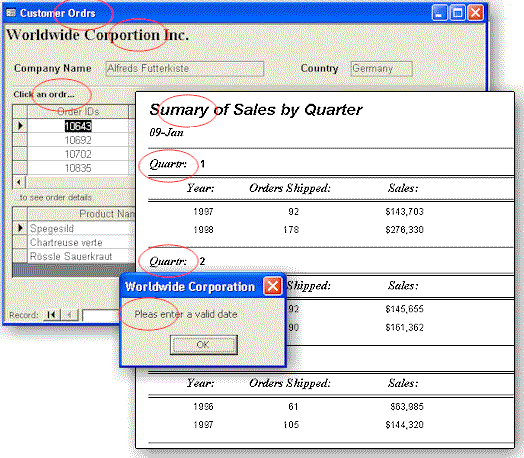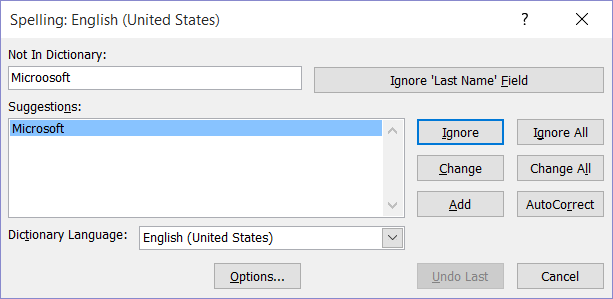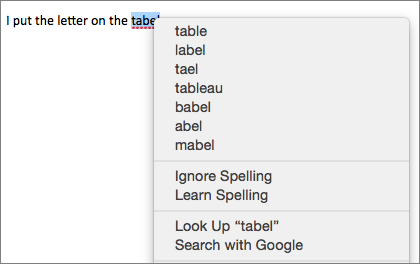

Īfter that exercise, you're probably wondering if you should even bother using spell checking at all.When the spell checker can't find any more incorrectly spelled words, Access will indicate the spelling check is complete by displaying the dialog box shown in figure. Ĭontinue with the spell checker, ignoring the remainder of the flagged words, if any.The remaining words in the Employees table are spelled correctly, so you can safely ignore them. Ĭlick London in the Suggestions list and click Change.Īccess makes the spelling correction for you.

Finally, a legitimate misspelling! Access lists a possible suggestion for the correct spelling of the word. The spell checker moves on and selects the word "Londan" as the next misspelled word in the table.

Press Ctrl + Home to move to the very beginning of the table. Before we start spell check, let's move to the very beginning of the table. If it isn't already open, open the Employees table.Īccess will start checking the spelling of the words in a table where the cursor is located and will stop whenever it encounters a word that is not found in its dictionary. When this happens, click either Ignore to ignore the word or Add to add the word to the custom spelling dictionary. Most databases contain names, addresses, and information that the spell checker may not recognize. Unfortunately, spell checking in Access is not nearly as useful as it is in a word processor. The "spelling check is complete" dialog box. The spell checker in Access is shared and used by the other programs in the Microsoft Office suite, so any words you add to the custom spelling dictionary in one Microsoft Office program will be available to the other Microsoft Office programs.


 0 kommentar(er)
0 kommentar(er)
